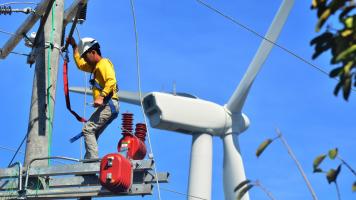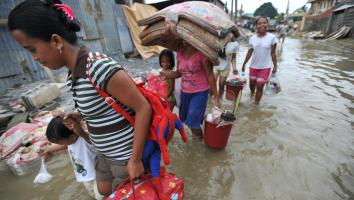Transitioning to a Low-Carbon Economy
This webinar discussed opportunities and the role of various stakeholders to accelerate Southeast Asia’s low-carbon energy transition.
As Southeast Asia slowly bounces back from COVID-19, a return to business as usual will not only be environmentally damaging, but also economically and socially detrimental in the long term.
To date, eight countries in Southeast Asia have announced net-zero emissions pledges, accounting for about 91% of the region’s carbon emissions. There is added pressure for countries to meet energy security and emissions goals amid the energy crisis due to Russia’s invasion of Ukraine. Consequently, countries face the challenge of designing and financing recovery that will put them on the path toward achieving net-zero economies between 2050 and 2065.
This webinar discussed opportunities and the role of various stakeholders to accelerate Southeast Asia’s low-carbon energy transition.
The webinar was organized by the Asian Development Bank's (ADB) Southeast Asia Department (SERD) as part of its SERD Policy Talk (SPOT) webinar series. The series features conversations on new ideas and development beyond office walls. It aims to inspire people to explore issues outside their normal area of work. It also encourages active interaction and debate among the participants from varied perspectives and approaches.
Speakers
- Shu Tian, Senior Economist, ADB
- David Dovan, Senior Investment Specialist, ADB
- Naeeda Crishna Morgado, Infrastructure Specialist (Innovation and Green Finance), ADB
- Lorraine Elliott, Professor Emerita, Coral Bell School of Asia Pacific Affairs, Australian National University
- Marlon Apanada, Southeast Asia Engagement Lead for Energy and Climate, World Resources Institute
- Moderator: Henry Ma, Senior Country Economist, ADB

